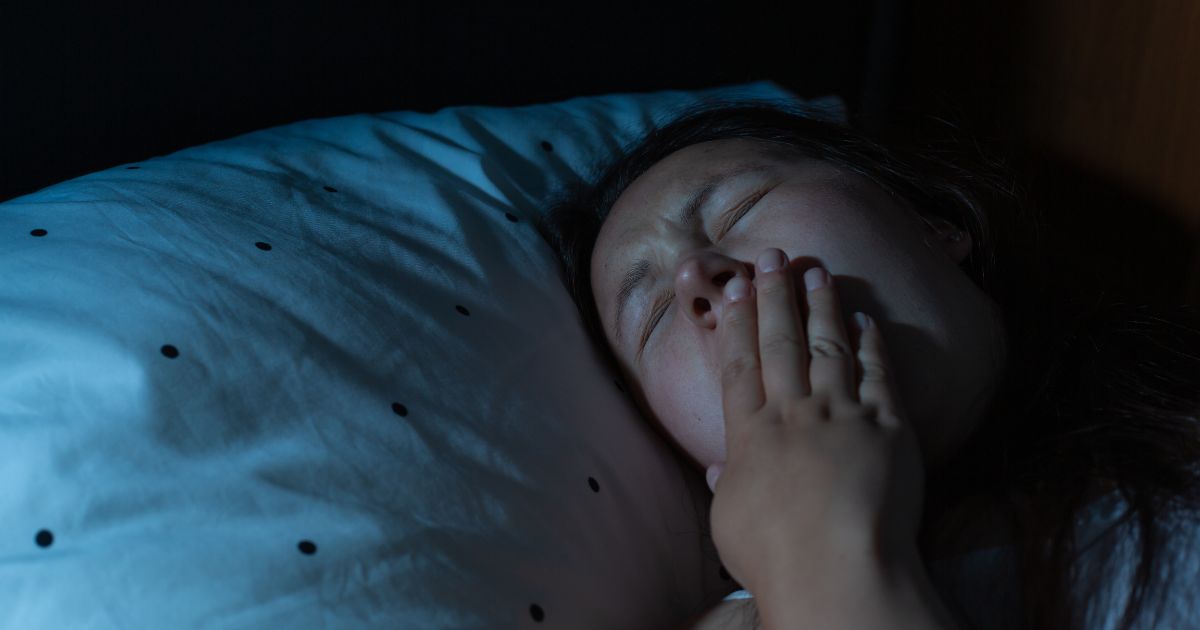Restless Leg Syndrome (RLS) is a condition that affects millions of individuals worldwide. It is characterized by an uncontrollable urge to move the legs, usually accompanied by uncomfortable sensations.
This article will explore “Is restless leg syndrome a neurological disorder”. We will delve into the definition of neurological disorders, their common symptoms, diagnostic methods, and available treatments. Additionally, we will examine the neurological basis of RLS and its relationship to sleep disorders.
What Are Neurological Disorders?
Neurological disorders encompass a wide range of conditions that affect the nervous system. The nervous system is responsible for transmitting signals between the brain, spinal cord, and the rest of the body. When this intricate network is disrupted, it can lead to various neurological disorders. These disorders can affect movement, cognition, sensation, and other essential functions.
Overview Of What Neurological Disorders Are
Neurological disorders are conditions that arise due to abnormalities in the nervous system. They can be classified into several categories, including degenerative diseases, genetic disorders, autoimmune disorders, and infectious diseases.
Examples of common neurological disorders include Alzheimer’s disease, Parkinson’s disease, epilepsy, multiple sclerosis, and stroke. These conditions can have a significant impact on a person’s quality of life and may require long-term management.
Neurological disorders can manifest through a wide range of symptoms. Some common symptoms include muscle weakness or paralysis, tremors, difficulty speaking or swallowing, memory loss, seizures, and abnormal sensations.
The severity and progression of these symptoms can vary depending on the specific disorder and individual factors. Early detection and accurate diagnosis are crucial for effective management and treatment.

Common Symptoms of Neurological Disorders
The symptoms of neurological disorders can vary widely, depending on the specific condition and affected areas of the nervous system. However, some common symptoms may indicate the presence of a neurological disorder. These include:
- Muscle Weakness or Paralysis: Neurological disorders can cause muscle weakness or even full paralysis in extreme cases. This can significantly impact a person’s mobility and ability to perform daily activities.
- Tremors: Tremors are involuntary movements or shaking of certain body parts, such as the hands or legs. They can be a common symptom of conditions like Parkinson’s disease or essential tremors.
- Cognitive Impairment: Many neurological disorders can affect cognitive function, leading to memory loss, difficulty concentrating, or impaired judgment. Alzheimer’s disease and dementia are examples of conditions that cause cognitive decline.
- Seizures: Seizures occur when there is abnormal electrical activity in the brain. Epilepsy is a neurological disorder characterized by recurrent seizures.
- Sensory Abnormalities: Neurological disorders can also cause sensory abnormalities. This can include numbness or tingling sensations, hypersensitivity to touch, or loss of sensation in certain areas of the body.
How are Neurological Disorders diagnosed?
Diagnosing neurological disorders can be challenging due to the complexity of the nervous system and the diverse range of conditions that fall under this category. However, several approaches and tests can aid in the diagnostic process. These may include:
- Medical History and Physical Examination: The initial step in diagnosing a neurological disorder involves taking a detailed medical history and conducting a comprehensive physical examination. This helps the healthcare provider gather information about symptoms, their progression, and any relevant risk factors.
- Neurological Examination: A neurological examination assesses the function of the nervous system. It may include tests to evaluate reflexes, muscle strength, coordination, sensation, and mental status. These tests help identify any abnormalities that may point to the presence of a neurological disorder.
- Imaging Tests: Imaging tests, such as magnetic resonance imaging (MRI) or computed tomography (CT) scans, can provide detailed images of the brain and spinal cord. These images can help identify structural abnormalities, tumors, or other conditions that may be causing neurological symptoms.
- Electroencephalogram (EEG): An EEG is a test that measures electrical activity in the brain. It can help diagnose and monitor conditions like epilepsy by detecting abnormal brain waves.
- Laboratory Tests: Blood tests and other laboratory investigations can be helpful in diagnosing certain neurological disorders. These tests can check for specific markers or identify underlying metabolic or infectious causes.
Treatments for Neurological Disorders
Treatment options for neurological disorders vary depending on the specific condition and its underlying cause. In some cases, lifestyle modifications and supportive care may be sufficient to manage symptoms. However, other conditions may require more targeted interventions, such as medication, surgery, or rehabilitation therapies. Some common treatment approaches include:
- Medication: Medications are often prescribed to manage symptoms and slow down the progression of neurological disorders. These may include pain relievers, anti-seizure drugs, muscle relaxants, or medications that target specific disease processes.
- Surgery: In some cases, surgical intervention may be necessary to treat neurological conditions. This may involve removing tumors, repairing damaged blood vessels, or deep brain stimulation to manage movement disorders.
- Rehabilitation Therapies: Rehabilitation therapies, such as physical therapy, occupational therapy, or speech therapy, can help individuals regain or improve their functional abilities. These therapies focus on improving mobility, coordination, speech, and other essential skills.
- Lifestyle Modifications: Making certain lifestyle changes can also be beneficial in managing neurological disorders. This may include adopting a healthy diet, engaging in regular exercise, getting adequate sleep, and managing stress levels.

Is Restless Leg Syndrome a Neurological Disorder?
Restless Leg Syndrome (RLS) is indeed classified as a neurological disorder. RLS is characterized by an irresistible urge to move the legs, often accompanied by uncomfortable sensations such as tingling or crawling. The exact cause of RLS is not entirely understood, but research suggests a strong neurological basis for the condition.
Understanding Restless Leg Syndrome
Restless Leg Syndrome is a complex disorder that affects the nervous system. It is estimated to affect up to 10% of the population, with symptoms ranging from mild to severe. Individuals with RLS often experience worsening symptoms during periods of rest or inactivity, making it difficult to relax or fall asleep.
The Neurological Basis of Restless Leg Syndrome
Studies have shown that RLS is associated with abnormalities in the brain’s dopamine system, a neurotransmitter involved in movement and reward.
The disruption of dopamine signaling in the brain can lead to the characteristic symptoms of RLS. Additionally, iron deficiency and genetic factors have been implicated in the development of RLS.
As you will find out below, there are ways to prevent this disorder from disrupting your sleep.
Is Restless Leg Syndrome a Sleep Disorder?
Restless Leg Syndrome is a sleep disorder closely linked to other sleep disorders. In fact, it is classified as a sleep-related movement disorder. Sleep disorders encompass a variety of conditions that disrupt normal sleep patterns and can lead to daytime sleepiness and impaired functioning.
Classification of Sleep Disorders
Sleep disorders can be broadly classified into four categories:
- Insomnia: Insomnia refers to difficulty falling asleep, staying asleep, or experiencing non-restorative sleep.
- Sleep Apnea: Sleep apnea is characterized by pauses in breathing during sleep, leading to disrupted sleep and low oxygen levels.
- Narcolepsy: Narcolepsy is a neurological disorder that causes excessive daytime sleepiness and sudden, uncontrollable episodes of sleep.
- Sleep-related Movement Disorders: This category includes conditions such as RLS, periodic limb movement disorder (PLMD), and sleep-related bruxism.
Diagnosis Criteria For Restless Leg Syndrome Sleep Disorder
The diagnosis of sleep disorders, including Restless Leg Syndrome, involves a thorough evaluation of symptoms and may require a sleep study. Sleep testing, also known as polysomnography, involves monitoring various physiological parameters during sleep.
This test helps identify any disruptions in sleep patterns and assess the severity of the condition.

What Can I Do for Restless Leg Syndrome?
If you suspect you may have Restless Leg Syndrome, it is essential to consult a healthcare professional for an accurate diagnosis and appropriate treatment. While there is no cure for RLS, there are several remedies that can help manage symptoms:
- Lifestyle Modifications: Engage in regular physical exercise, practice relaxation techniques, and maintain a consistent sleep schedule.
- Medication: Certain medications, such as dopamine agonists, can be prescribed to alleviate symptoms of RLS.
- Hot or Cold Therapy: Applying a warm or cold compress to the legs may provide temporary relief from RLS symptoms.
- Avoid Triggers: Identify and avoid triggers that worsen RLS symptoms, such as caffeine, nicotine, and certain medications.
Treatment for Restless Leg Syndrome
In addition to lifestyle modifications, medication may be prescribed to manage Restless Leg Syndrome. Dopamine agonists, such as pramipexole or ropinirole, are commonly prescribed to reduce the urge to move the legs and alleviate uncomfortable sensations. Other medications, such as anti-seizure drugs or opioids, may be used in severe cases or when other treatments have been ineffective.
Visit Jax Sleep Center For Help With Your Sleep Disorders
If you are experiencing symptoms of Restless Leg Syndrome or other sleep disorders, it is crucial to seek professional help. Jax Sleep Center offers comprehensive sleep disorder evaluations and personalized treatment plans. Our team of experts can help you regain restful sleep and improve your overall quality of life. Contact us today to get started.






